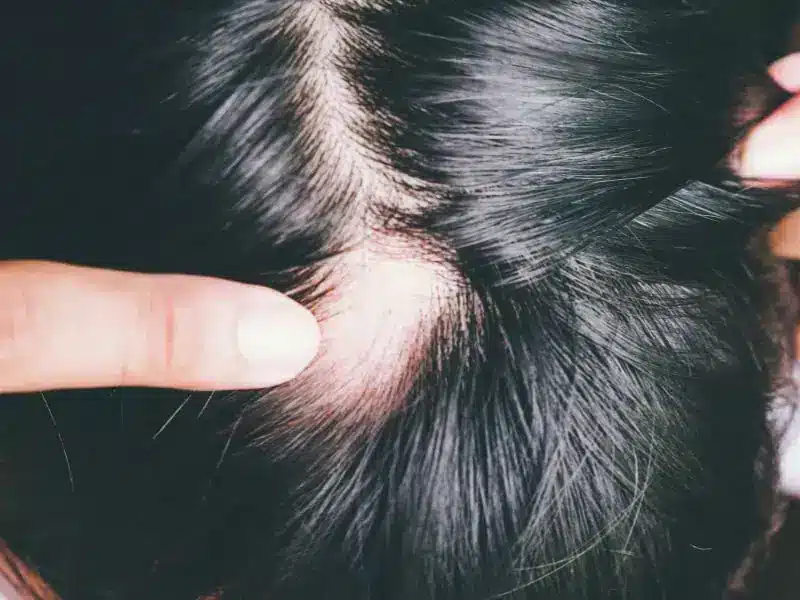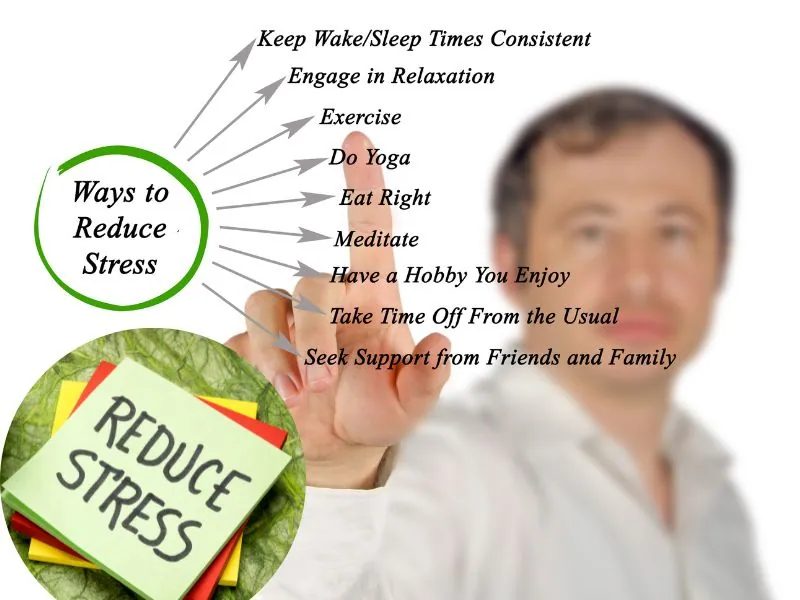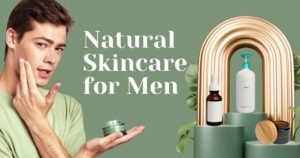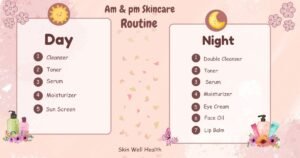Best 9 Tips by Doctors: How to Alopecia Areata Self-Care
Managing alopecia areata can be challenging; however, there are a few tips for alopecia areata self-care, according to dermatologists, that can help people deal with the condition and boost their self-confidence.
This article will guide you through effective 9 alopecia areata self-care techniques, way of life changes, and constant support that can have a big effect on people with alopecia areata.
What is Alopecia Areata?

Going bald in spots is caused by a problem with the immune system called alopecia areata.The immune system attacks hair cells mistakenly, which makes people lose their hair. People of all ages can be affected by it.
The Effect of Hair Loss. Losing hair can have a big effect on a person’s mental health and confidence. People with alopecia areata may feel uncomfortable and stressed about their changing identity as a result of their changing look.
Also Read:
Top 9 Strong Causes of Alopecia Areata: You Need to Know
Best 9 Tips for Alopecia Areata Self-Care
For people who have alopecia areata, an autoimmune disease that causes uneven hair loss, hair loss can be particularly stressful. While alopecia areata can’t be treated, there are ways you can do to improve your health and control the disease. Dermatologists recommend the following as the most effective self-care steps:
1. Consider Counseling with Doctor
Talk to an expert or a doctor who is board-certified. A physical examination may provide a dermatologist with the necessary information for making a proper diagnosis in the case that additional tests are required. ⑴
A dermatologist knows how to treat problems with the skin, hair, and nails. They can make a treatment plan for you based on your medical history, the severity of your alopecia areata, and other factors. ⑴
Based on your specific needs, they can suggest the best skincare products and other services for you. ⑴
2. Gentle Hair and Scalp Care
Brush and comb gently — Choose a wide-tooth comb and a gentle bristle brush to avoid pulling or irritation on your scalp. ⑴
Avoid harsh chemicals — Because they irritate the scalp, you should avoid using hair and skincare products that include alcohol, fragrances, or dyes. Look for products that are gentle and free of fragrance. ⑴
Air dry whenever possible — Leave your hair in air dry whenever you can to reduce the use of heat tools. Don’t use blow dryers, straighteners, or curling irons. ⑴
Avoid tight hairstyles — Tight hairstyles such as ponytails, cornrows, and braids may cause hair follicle pressure, which in effect can lead to hair loss. Choose looser styles that reduce the chance of additional damage and divide pressure evenly over the scalp. ⑴
Also Read:
How to Stop Alopecia areata from Spreading: You Need To Know
3. Sun Protection
Dermatologists commonly advise patients with alopecia areata to cover up the affected areas in the sun as much as possible to prevent more damage and irritation. Here are a few suggestions that people often make, such as:
Protect your scalp from the sun. Bald or thinned skin is more likely to get burned by the sun. For protection, wear a wide-brimmed hat, scarf, or clothing that covers the affected areas when you’re outside. This provides an extra layer of protection against harmful UV rays. ⑵
Apply sunscreen. In areas where your hair has been damaged, cover your scalp with a water-resistant sunscreen that has a broad-spectrum sunscreen with an SPF of 30 or higher. At least every two hours, or if your head becomes wet (such as while sweating), reapply the sunscreen. ⑵
Extra Tip:💡✨
“Using hair loss cosmetic powders or sprays can help hide bald spots. These creams come in various shades to match your hair, and they can help hide hair loss temporarily.”
4. Protect Your Eyes and Nose
Safeguard your eyes if you’ve lost eyelashes or eyebrows. Your eyebrows and eyelashes help keep sweat, dust, and even small particles like pollen out of your eyes. Without them, you run the risk of eye irritation and infection. Here are some ways to keep your eyes safe:
- Wear glasses or sunglasses — Glasses or sunglasses can protect your eyes from dust, dirt, and other small particles. If your eyes get irritated quickly, you may want to wear them more often, even inside. ⑴
- Use artificial eyelashes — Fake eyelashes can help replace the protective effect of real ones. To keep irritation from getting worse, choose hypoallergenic and soft items. ⑴
- Practice good eye hygiene — Clean your eyelids with a gentle eye wash every so often to get rid of any dirt or debris that has grown up.
Protect your nostrils if you’ve lost nasal hair. Nasal hair keeps dust, germs, and other particles that irritate you from getting into your nose. If you’ve lost some or all of your nose hair, such information may be easier for you to breathe in. Be careful with your nose by doing the following steps:
- Saline nasal irrigation — By cleaning your nose with a saline solution on a regular base, you can get relieve of allergens and keep your nose wet.
- Use petroleum jelly — Applying a small quantity of petroleum jelly to the inside of your nose can help capture dust and other particles. ⑴
- Wear a mask in dusty environments — However, like cleaning or yard work, you might want to wear a mask, If you are outdoors in a dirty or dusty area or doing activities that make dust fly.
5. Protect areas with hair loss from cold temperatures
Like sunburn, bald spots or damaged areas of the hair that are showing on your scalp, inside your nose, or in your ears can feel cold. ⑴
Hats and scarves can protect your head from wind, cold air, and even the chill of air conditioning in the summer. ⑴
6. Manage Stress
Stress may happen to people who have alopecia areata. Stress can make alopecia areata worse.
To deal with stress and stop hair loss, try learning ways to relax, like yoga, meditation, or deep breathing. ⑴
7. Maintain a Healthy Lifestyle
Balanced diet — Make sure your body gets the nutrients it requires for hair growth, eat a healthy diet or anti-inflammatory diet full of fruits, veggies, and whole grains. ⑵
Also Read:
The Best Diet for Alopecia Areata: What to Eat and Avoid
Consider supplements — Vitamin D, iron, zinc, biotin, and fish oil may help your hair grow. Talk to your doctor about these dietary supplements.
Also Read:
Find Your Solution: 11 Best Hair Vitamins for Alopecia areata
Get enough sleep — Aim for 7-8 hours of sleep every night to improve your health and maybe even your hair growth.
Extra Tip:💡✨
For hair loss, a scalp cooling remedy involves wearing a cap that cools your scalp. Scalp cooling is most often used to reduce hair loss before chemotherapy. Even so, some studies show that it might also help people with alopecia areata.
8. Get emotional support
Alopecia areata can be emotionally challenging. Talking to a trusted friend, family member, therapist, or joining a support group can provide emotional support and help you cope with the condition.
In addition to emotional support from loved ones, consider these options:
Support groups — Connecting with others who understand alopecia areata can be emotionally helpful. The National Alopecia Areata Foundation (NAAF) is a great resource for finding support groups in your area. ⑴
You can find support groups from the National Alopecia Areata Foundation (NAAF) here → Get Support
Also Read:
3 Alopecia Areata Regrowth Signs: According to Alopecian
9. Take regular appointments from your doctor
While alopecia areata doesn’t pose a serious risk to your life, it’s important to see a doctor as soon as you start losing hair.
Alopecia areata may sometimes be a sign of other medical conditions such as vitiligo (loss of skin pigment), thyroid issues, anemia, atopic dermatitis, or lupus erythematosus. ⑴
To diagnose alopecia areata and rule out any underlying conditions that could need more attention, a doctor may perform an in-depth examination.
Getting a medical professional’s diagnosis might help reduce the stress and concern that come with experiencing sudden hair loss.
Keep in mind that getting a diagnosis early on might increase your chances of getting your hair back.
Treatments
Your dermatologist might recommend Treatments like topical corticosteroids, minoxidil, or corticosteroid injections to stimulate hair regrowth. Discuss the options and implicit side effects with your doctor.
According to AAD in 2023, for those with alopecia areata, new treatments will provide more options.
Also Read:
Best 12 Natural Home Remedies for Alopecia Areata – SWH
Conclusion
Alopecia areata can be hard to deal with, but there are different strategies of self-care for alopecia areata that can make the journey better. You can help your hair grow back and regain your confidence by talking to experts, living a healthy life, and trying out different treatments.
FAQs About Alopecia Areata Self-Care
Q1. Can stress cause alopecia areata?
Alopecia areata is not caused by stress directly, but it can make the disease worse in people who are genetically at risk for it.
Q2. Is alopecia areata endless?
Alopecia areata can last for a long time or a short time. Some people might notice regrowth, but others may not.
Q3. Are there any natural remedies for alopecia areata?
There isn’t an exact treatment to make hair grow back, but essential oils and scalp massages might help.
Q4. Can I use regular hair products with alopecia areata?
Before you use any hair products, you should talk to your doctor to make sure they won’t make your condition worse.
Q5. How can I manage the emotional impact of hair loss?
Taking support from friends, family, or a professional dermatologist can help you deal with the emotional challenges that come with losing your hair.
Sources:
1. American Academy of Dermatology. Hair loss types: Alopecia areata self-care
2. Verywell Health. Alopecia Areata Self-Care and Medical Treatment











